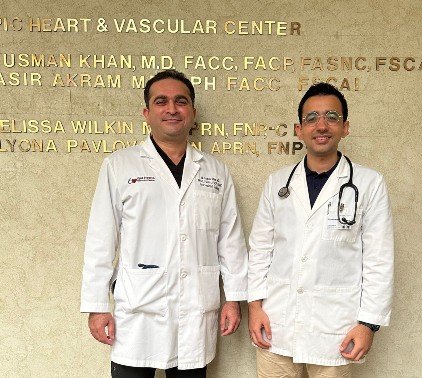I am privileged to provide this testimonial, reflecting upon the diverse and enriching experiences I encountered during my clinical rotation. This period of intense learning and growth has broadened my medical knowledge and equipped me with essential skills that will undoubtedly shape my future as a healthcare professional.
Throughout my clinical rotation, I had the opportunity to actively engage in patient care by taking detailed notes and conducting thorough examinations. These experiences allowed me to develop my clinical skills, enhance my medical knowledge, and practice effective communication with patients. By presenting patients to Dr. Khan, I gained valuable insights into the diagnostic process and witnessed the importance of concise and accurate patient reporting.
Another significant aspect of my clinical rotation was the exposure to the use of electronic medical records (EMR). I was able to contribute to the efficient documentation of patient information by accurately recording patients’ notes in the EMR system. This experience underscored the importance of maintaining organized and comprehensive medical records for continuity of care and effective communication among healthcare providers.
One of the most remarkable experiences during my clinical rotation was the opportunity to observe in the catheterization laboratory (cath lab). Witnessing critical cases, such as post-arrest patients from myocardial infarction, multi-vessel disease, and total occlusion of the right coronary artery, was truly eye-opening. I observed the utilization of various interventional techniques, including wiring, ballooning, and stenting, in conjunction with aspiration catheters and antiplatelet medications. Additionally, I had the privilege of witnessing intravascular ultrasound (IVUS) procedures and complex coronary interventions. These experiences deepened my understanding of interventional cardiology and underscored the importance of teamwork and precise decision-making in acute cardiac care.
During my rotation in the Coronary Care Unit (CCU) and inpatient setting, I had the opportunity to interpret electrocardiograms (EKG) and stress EKGs. This experience sharpened my skills in identifying cardiac abnormalities and helped me develop a systematic approach to EKG interpretation. I also had the privilege of interpreting echocardiograms by attending sessions with the Echo technician. This exposure solidified my understanding of cardiac anatomy and function, enabling me to appreciate the diagnostic capabilities of echocardiography. Additionally, I gained hands-on experience in interpreting nuclear perfusion tests, enhancing my proficiency in assessing myocardial perfusion and identifying ischemic areas.
As part of my learning experience, I presented an article on the implementation of high-sensitive cardiac troponin assays in the United States. This opportunity allowed me to delve deeper into the latest advancements in cardiac biomarkers and their implications for clinical practice. Furthermore, I actively engaged in teaching and sharing my expertise with colleagues, particularly in EKG interpretation and basic echocardiography views. The opportunity to contribute to their learning journey was immensely gratifying and reinforced my commitment to ongoing education and mentorship.
Beyond the clinical experiences, the daily attendance and interaction with colleagues fostered a collaborative and supportive environment. Building friendships with fellow healthcare professionals and staff members enriched my experience, creating a sense of camaraderie and shared learning.
In conclusion, my clinical rotation encompassed a wide range of experiences that have significantly shaped my medical knowledge, clinical skills, and interpersonal connections. I am immensely grateful for the opportunities provided during this rotation, which have fueled my passion for cardiology and solidified my dedication to providing compassionate, evidence-based care to my future patients.

